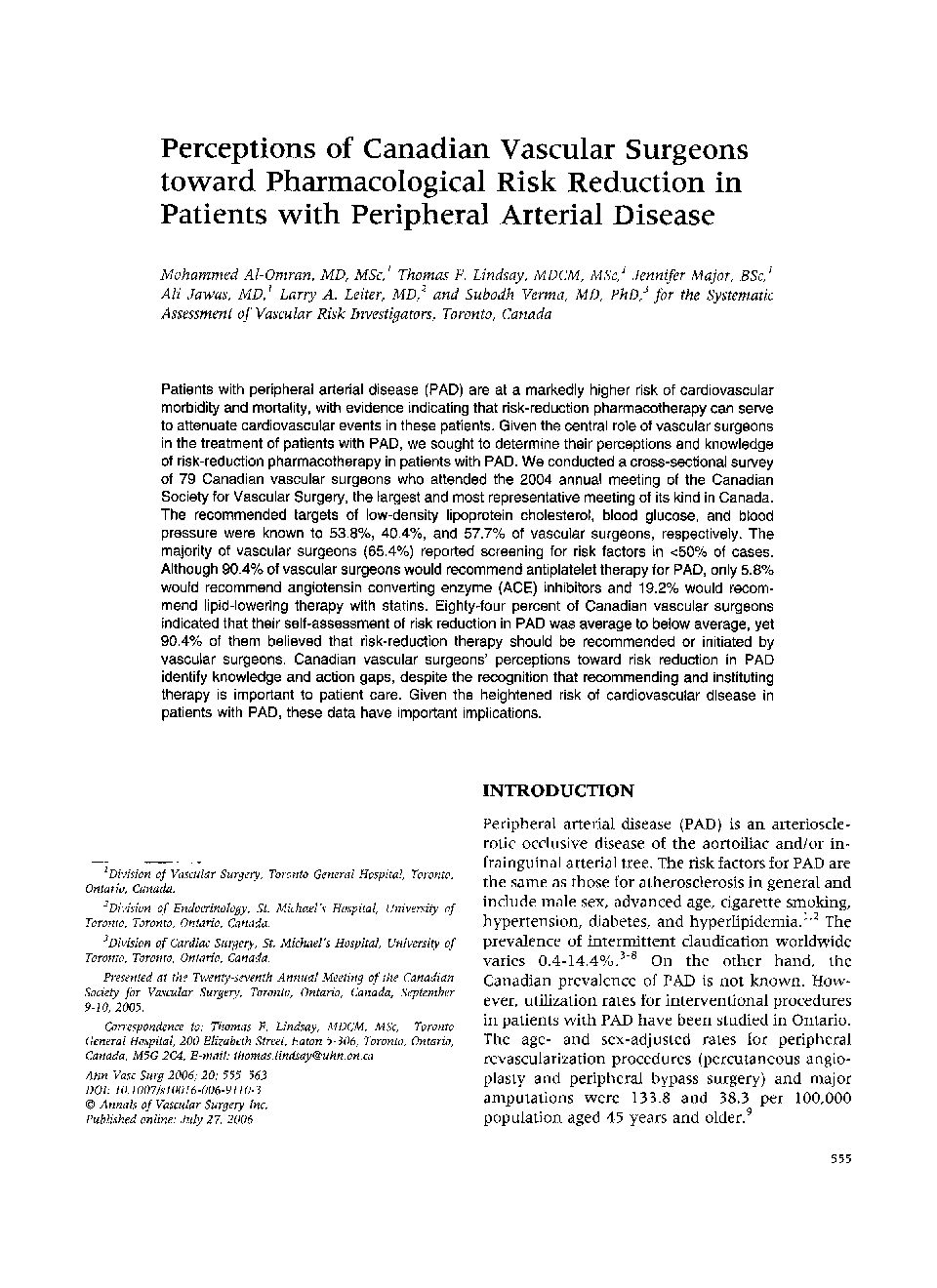| Article ID | Journal | Published Year | Pages | File Type |
|---|---|---|---|---|
| 2888344 | Annals of Vascular Surgery | 2006 | 9 Pages |
Abstract
Patients with peripheral arterial disease (PAD) are at a markedly higher risk of cardiovascular morbidity and mortality, with evidence indicating that risk-reduction pharmacotherapy can serve to attenuate cardiovascular events in these patients. Given the central role of vascular surgeons in the treatment of patients with PAD, we sought to determine their perceptions and knowledge of risk-reduction pharmacotherapy in patients with PAD. We conducted a cross-sectional survey of 79 Canadian vascular surgeons who attended the 2004 annual meeting of the Canadian Society for Vascular Surgery, the largest and most representative meeting of its kind in Canada. The recommended targets of low-density lipoprotein cholesterol, blood glucose, and blood pressure were known to 53.8%, 40.4%, and 57.7% of vascular surgeons, respectively. The majority of vascular surgeons (65.4%) reported screening for risk factors in<50% of cases. Although 90.4% of vascular surgeons would recommend antiplatelet therapy for PAD, only 5.8% would recommend angiotensin converting enzyme (ACE) inhibitors and 19.2% would recommend lipid-lowering therapy with statins. Eighty-four percent of Canadian vascular surgeons indicated that their self-assessment of risk reduction in PAD was average to below average, yet 90.4% of them believed that risk-reduction therapy should be recommended or initiated by vascular surgeons. Canadian vascular surgeons' perceptions toward risk reduction in PAD identify knowledge and action gaps, despite the recognition that recommending and instituting therapy is important to patient care. Given the heightened risk of cardiovascular disease in patients with PAD, these data have important implications.
Related Topics
Health Sciences
Medicine and Dentistry
Cardiology and Cardiovascular Medicine
Authors
Mohammed MD, MSc, Thomas F. MDCM, MSc, Jennifer BSc, Ali MD, Larry A. MD, Subodh MD, PhD,
